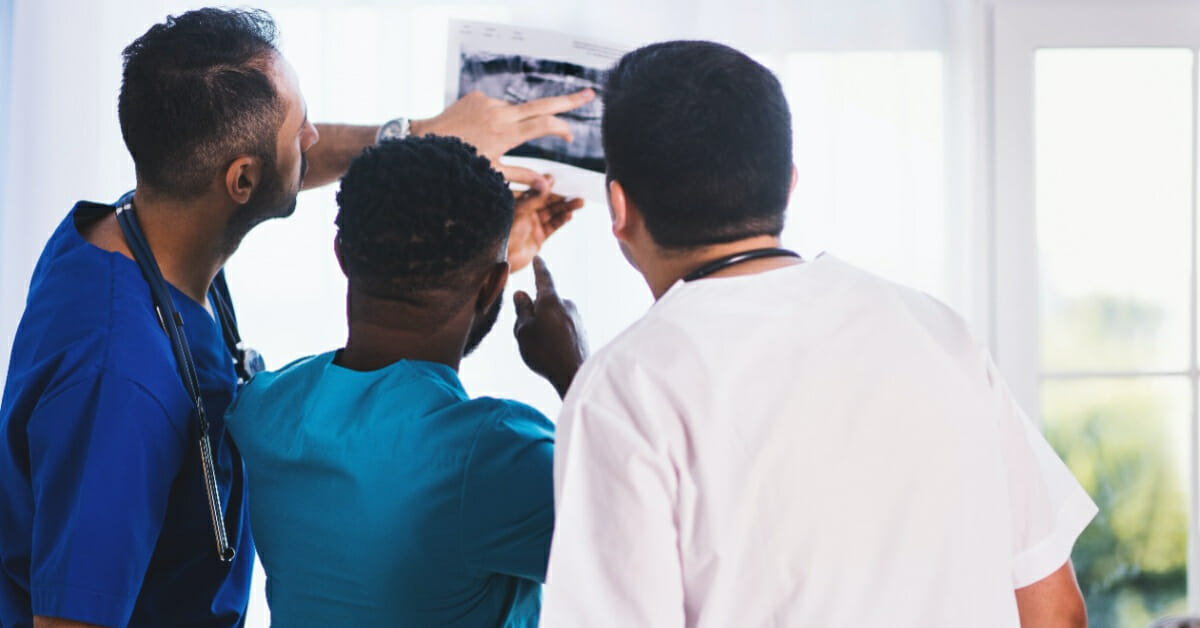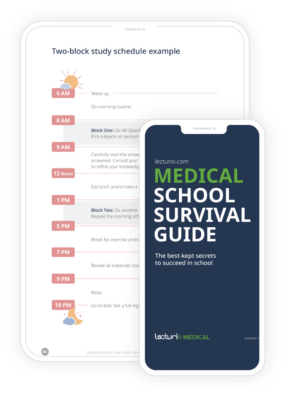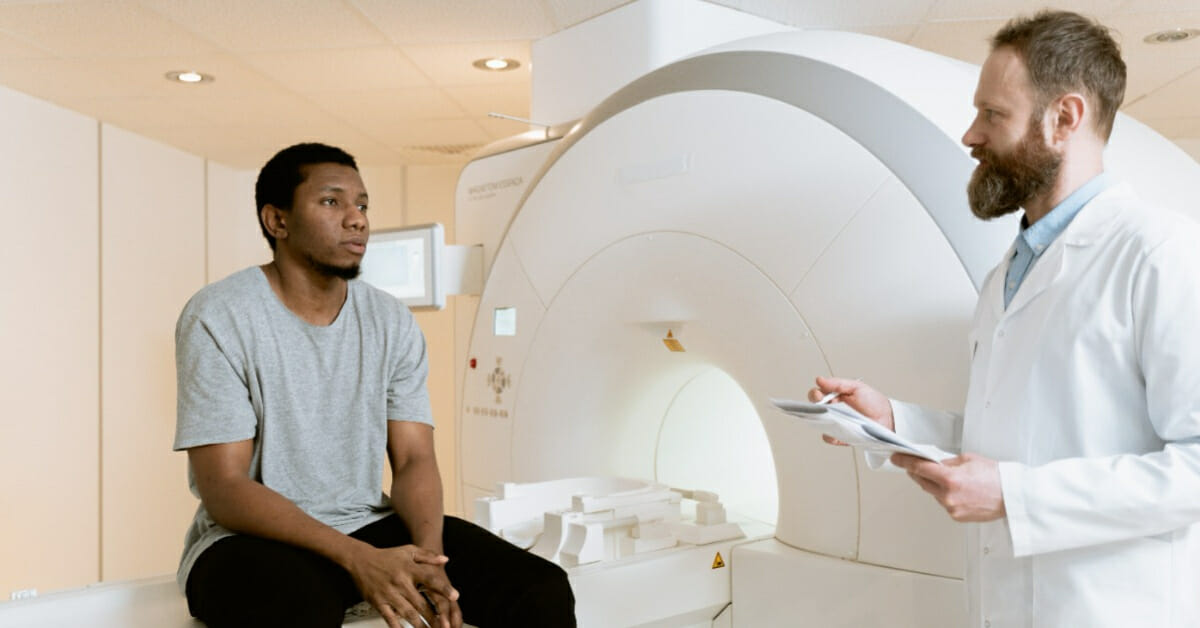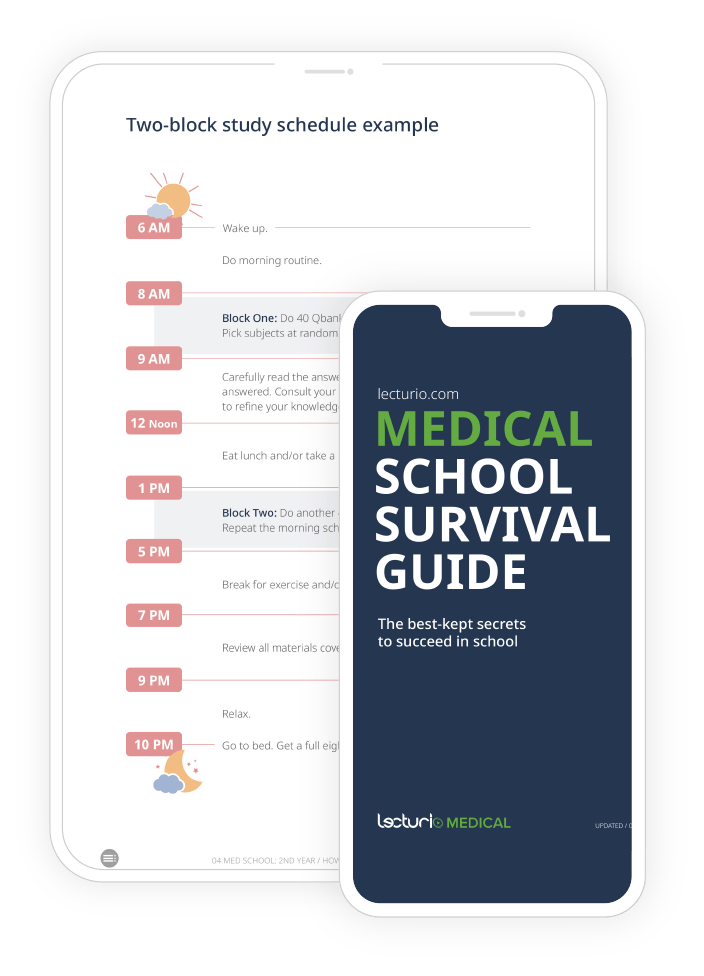If you’re about to start your rotations, you are probably feeling a lot of things, both positive and negative. That’s totally normal. When I started, I was worried that, although I had passed the theoretical parts of my medical education, I was going to bomb in practice. I wasn’t good with people and I don’t have the most stable hands when performing medical procedures. But that didn’t stop me from coming into work at my best, and it shouldn’t stop you, either.
If you’re someone who is just curious about clinical rotations, it can sound intimidating. This is especially true if you are planning to go to medical school or are in medical school. Honestly, it should be intimidating. That’s because you have a lot of responsibilities during medical rotations. But don’t worry — this article will quell your fears (or possibly confirm them).
What Are Clinical Rotations?
Clinical rotations, sometimes referred to as clerkship, is when you, a medical student, finally go to actual clinics and hospitals as part of the healthcare team.
You’ll be rotating in several areas of medicine and learn from each practice. It can seem overwhelming and it is. This is where everything you’ve learned in the classroom literally comes to life.
Why are they called rotations? It’s because students get to experience many (but not all) fields of medicine for a few weeks or months, and then they take turns working in each field. Not every school or hospital will have the same experience or the same exposure to particular practices, but that’s the gist of the program.
For me, I rotated in several departments, mostly in core subjects, including Internal Medicine, Surgery, Pediatrics, Family Medicine, and Obstetrics & Gynecology, and for a shorter period in ENT, Orthopedics, Psychiatry, Neurology, Ophthalmology, Anesthesiology, and Radiology. Although some branches of medicine didn’t have an official rotation, we were still exposed to them (Dermatology, Emergency Medicine, Pathology, etc.) since all the medical fields are intertwined.
Related videos
What Is My Role as a Medical Student?
Since you’re fresh out of your theoretical classes (and licensure exams), much will be expected of you. Even from your first day on the job, you will be asked questions you can’t answer or be required to perform certain tasks that you won’t know how to do. That’s fine. That’s also part of being a medical student.
People may tell you that your job as a medical student is to shadow and assist the doctors, to perform the tasks expected at your level, or to tend to patients.
Although these are all true, your main job is to learn.
By integrating yourself into the medical team, you’ll get to see firsthand how cases are handled and observe the standard practices in each field of medicine.
When I first stepped into the hospital, I had no idea what my exact role was. My first day had me fumbling my way through my residents’ directions, who asked me to do things that I’ve only ever read about in a textbook or performed on a plastic dummy. By the end of the day, I thought the next day would go smoothly after having undergone that day’s tiring ordeal. I was so wrong. I fumbled my way through a lot of things for months after my first day. The hard truth is: part of our job is also making mistakes, which helps ensure that they don’t happen once we’re full-fledged physicians.
Apart from that, most of the work you’ll do involves completing paperwork, interviewing patients, shadowing doctors, reading lab results, and assisting or performing procedures on patients. What you’ll actually be doing won’t be limited to that; but ultimately, your second main job is to make the lives of the interns and residents easier by helping out where you can.
How Do I Prepare for Clinical Rotations?
Before your rotations start, it can feel like you’re neither ready nor qualified to be working with patients. But I don’t think you’ll ever feel ready. Medicine is such a broad field that you can never truly say you’re ready for anything being thrown your way. Instead, quell your anxieties by starting small; make the preparations necessary to at least mentally prepare yourself.
Buy the things you’ll need for your current rotation, such as a bag of neurological PE tools if you’re in neurology; or a lot of tape and a pair of bandage scissors for surgery. Each rotation is special and you need to be prepared for the common tasks that could be asked of you. Don’t forget to wear the proper attire and wear it well (residents get a pass because they’re tired), so that even if you’re not academically prepared, you can at least look like you are.
Ask the people who rotated before you what you’re supposed to do. Sometimes I would ask them to take me through the ins and outs of the rotation and ask them what they usually do as medical students. It helps to study the basics and most common cases that they encounter on that specific rotation before you enter so that at least when you’re being bombarded with questions, you have some armor to keep you safe.
Studying medicine has never been easier.
Set yourself up for success with Lecturio.
Things I Wish I Knew About Clinical Rotations
#1: You’re going to feel lost at first
Remember how I said my first day consisted of me fumbling around? I was like that for a week, and the first few days of each rotation. There are some things you’ll never know how to do until you do nit yourself. So you can’t expect yourself to know how to do things, no matter how much you’ve read or how many YouTube videos you’ve watched (but it would be nice if you tried, anyway).
It’s easy to feel lost amongst a team of doctors who have been working for years while you just started figuring out how an IV set works. That’s all fine. In fact, it’s better you make mistakes now while your decisions have relatively little bearing on patient management. So don’t be so hard on yourself when you get a few things wrong or when you don’t know how to do something. It’s all part of the process.
#2: Your patients are your best teachers
Get to know your patients. I don’t mean just taking their medical history. I mean studying their case, building rapport, and reading their patient charts. When you see a case you haven’t seen before, read what risk factors could have contributed to their problem, know what complications you’re trying to avoid, find out why they’re given specific drugs, etc. View the case as if you’re the attending and figure out why things were done the way they were.
I thought I could breeze through my clinical rotations without reading the cases. I was wrong. Once you wear the white coat, patients can and will ask you questions and advice.
You’re in a position to calm their doubts and fears using what you’ve learned in medical school. Never waste that opportunity by not studying their case. By the end of it, most of the information I retained about common diseases came from correlating patient cases that I had encountered. That’s not something that can be replaced by simply reading books at home.
#3: You’re part of the team now
It can be difficult to follow what everyone’s talking about when they discuss a complicated case. I used to feel intimidated by procedures and words that I didn’t understand because I was “just a medical student.” But when you change your mindset into acting as someone who is part of the team, you feel the responsibility to follow the case and to really attempt to understand it. If you have trouble understanding on your own, you can always ask your intern, resident, or even consultants for help. So don’t feel too intimidated to ask questions.
#4: Enthusiasm goes a long way, even if you don’t like your rotation
“The patient is alert, awake, and coherent.” is a sentence you’ll hear a lot when describing a patient at first glance. This sentence is meant to describe the medical students too.
You need to be alert, awake, and coherent (or well-read). Take on as many tasks and see as many patients as you can while asking questions from your superiors as you go.
Also, it can also be tiring for doctors to train you when they feel like you don’t want to be there. So even if you don’t like the rotation, you still need to show initiative to demonstrate you are learning from it. There are many things you need to learn that can’t be taught in the classroom, so you need to take advantage of your rotations. However, don’t forget to take it easy because…
#5: Resting is part of the process, too
You’ll face a lot of challenges in clinical rotations: difficult patients, strict doctors, confusing medical cases, and long procedures. But your worst enemy in clinical rotations is burnout. This is common, yet it’s a situation to be avoided at all costs. Doctors are burned out all the time; so is it important for you to not burn out?
Because your main job is learning, which is hard to do when you’re hanging on to your last ounce of wakefulness. You need to be able to keep up with your interns and residents as much as possible. So take breaks when you need to for sleeping, eating, or even just breathing. Afterward, hype yourself up. Read motivational quotes, listen to music, or call a friend. Do anything it takes to give yourself little boosts of energy and inspiration. Trust me, it’s the little things that drive you on the toughest days.
#6: The staff members are your new best friends
It goes without saying that you should get along with your colleagues, but many students forget that there are other staff around them. The hospital can be one of the most tense places in which to work, so it helps to get along with the other healthcare workers. During times that I didn’t know what to do, it was always the nurses and technicians who would help me through it. So get to know them and build good relationships with them. They could be your greatest ally when things get difficult.
#7: You can lose track of your goals if you’re not careful
One thing people forget when doing clinical rotations is to have fun with it. Sure, it can be intense and stressful, but ultimately, this is the career you wanted. For whatever reason you picked medicine, you need to hold onto it because this is where you are going to be challenged the most.
There will be tasks that you don’t like.
You might even think twice as to whether medicine is truly what you want.
Honestly, that’s not a bad thing. You should be thinking carefully about whether a career in medicine is what you want. If you’re unhappy practicing medicine, it’s better you figure it out now than later. Take a minute to think about your goals and what you’re willing to put yourself through to achieve them. If you decide to do something different, it’s not the end of the world. But, despite everything, if you decide to keep pushing through, you’ll definitely find something you’ll love in medicine.
A Final Word
In the end, it’s all about loving medicine, the good and the ugly. It’s not as glamorous as people think it is — honestly, it can get pretty toxic. But I can’t imagine being happier doing anything else. So, by all means, do what it takes to get through clinical rotations but don’t forget the bright-eyed first-year student you were when you stepped into medical school. You’ve already come a long way, and you just need to take it a few steps further before you become a full-fledged doctor.







